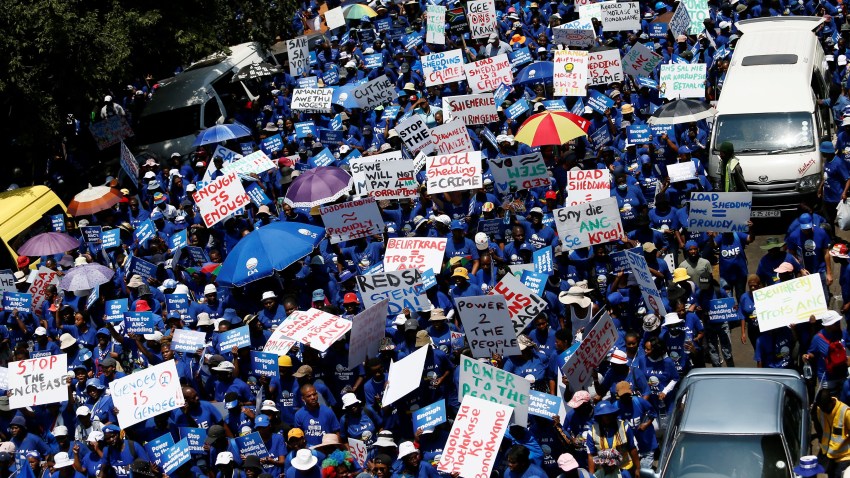With less than a year to go until South Africa’s next national election, several opposition parties have joined forces, hammering out a preelection coalition agreement in an attempt to unseat the ruling African National Congress, or ANC. The Multi-Party Charter, commonly known as “the Moonshot Pact,” is the first formal multiparty agreement of its nature in recent South African politics. Comprising the Democratic Alliance, or DA, Action SA and the Inkahta Freedom Party, or IFP, among others, the pact was driven by the fear that the ANC—which observers believe may not win a majority next year for the first time since the country’s first democratic elections in 1994—might form a coalition of its own with the populist Economic Freedom Fighters and its firebrand leader, Julius Malema.
The ANC’s popularity has taken a hit due to daily rolling electricity blackouts, endemic corruption, high unemployment and a stagnant economy, while its ability to forge a cohesive approach to addressing these problems has been hampered by factional divisions within the party. Nevertheless, South Africa’s opposition parties have struggled to make significant inroads into the ANC’s majority. In 2019, the ANC under President Cyril Ramaphosa won a hefty 57.5 percent of the vote. But that represented a significant decline from the 62.65 percent it won in 1994 under Nelson Mandela’s leadership, and the party already fell below the 50 percent benchmark in local elections held in 2021 in most of the major urban areas.
Frans Cronje, chairperson of the Social Research Foundation, suggests that one of the reasons behind the opposition’s failure to capitalize on the ANC’s weakness is that it does not enjoy strong loyalty from the electorate. Cronje claims that few opposition voters actually care about the party they vote for. Rather, many of them have simply adopted an “anything but the ANC” stance. In contrast, his research reveals that there is still a lingering nostalgia among South Africans for the ANC, which was, after all, the party of liberation from apartheid. What is more, according to Cronje, the large pool of black rural voters still sees the ANC as the only game in town, which compensates for the ANC’s weakness in major urban areas, where Cronje estimates it is polling now at around 30 percent.

